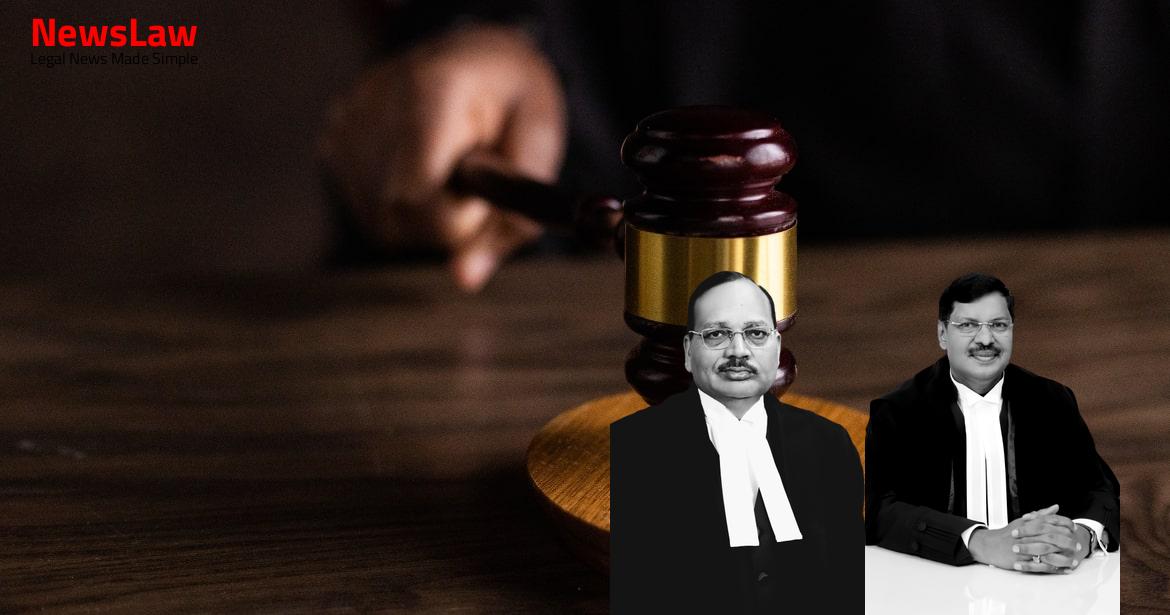In a landmark judgment by the Delhi High Court, a crucial decision was made regarding the time limits for filing written statements in civil cases. The case involved an appeal against a lower court’s ruling, where the Court emphasized the significance of respecting legal deadlines for timely resolution of disputes. This judgment is a significant milestone in ensuring the smooth administration of justice and adherence to procedural requirements.
Facts
- In February 2017, the appellant was approached by the respondent to purchase the first floor of the ancestral property.
- An agreement to sell was made on 17.03.2017 for a total consideration of Rs 7.5 lakhs, with Rs 1 lakh paid as earnest money.
- The agreement was not honored, leading to a legal notice from the respondent on 13.04.2017.
- The respondent later filed a civil suit seeking specific performance of the agreement and an injunction against alienation of the property.
- The appellant failed to file a written statement despite multiple opportunities granted by the Court.
- The Delhi High Court dismissed the appellant’s revision petition against the Civil Court’s order to strike off his defense.
- The appellant was granted final opportunity by the Court subject to payment of Rs 3,000 costs
- Despite multiple pass overs requested by the appellant, his Counsel did not appear before the Court
- Appellant failed to file any written statement or deposit costs despite several opportunities given by the Court
- Even beyond the maximum period of 90 days, appellant did not file any written statement or deposit costs
- The Civil Court closed the appellant’s opportunity of filing written statement and struck off his defense
- Appellant’s Counsel did not appear on the next hearing date or supply a copy of the written statement to the respondent
- The High Court in revision noted that despite repeated opportunities, the written statement was not filed within 120 days of notice
- Relying on the precedent set in Oku Tech Pvt Ltd v. Sangeet Agarwal and Others, the Delhi High Court summarily dismissed the petition
Arguments
- The appellant argued that Order VIII Rule 1 of CPC is merely procedural and directory, as held in various decisions including Salem Advocate Bar Association, T.N. v. Union of India.
- The appellant requested relaxation of the 90-day deadline for filing the written statement, citing personal appearances on all hearing dates and the Counsel’s lapse.
- It was emphasized that the dispute was non-commercial and did not fall under the Commercial Courts Act, 2015.
- The appellant claimed that the High Court overlooked the nature of the dispute and mistakenly applied a ratio intended for commercial disputes.
- The appellant sought one final opportunity to file the written statement, invoking inherent discretion under Order VIII Rule 1 of CPC.
- Severe prejudice was predicted if the delay was not condoned, leaving the appellant defenceless in the civil suit.
- The respondent contended that multiple chances were already granted, including extensions beyond the statutory 90-day period for filing the written statement.
- The appellant challenged the reliance on Oku Tech (supra) which was deemed applicable to commercial disputes only.
- Arg Respondent 1 argued that…
- Arg Respondent 2’s main point was…
- Arg Respondent 3 raised the concern that…
- Arg Respondent 4 provided evidence suggesting…
- Arg Respondent 5 emphasized the need to…
- Arg Respondent 6 proposed a solution to…
- Arg Respondent 7’s position was supported by…
Also Read: CRPF Act: Validity of Rule 27 for Compulsory Retirement – Case of Head Constable vs. CRPF
Analysis
- Commercial disputes are governed by the CPC as amended by Section 16 of the Commercial Courts Act, 2015.
- Non-commercial disputes fall within the ambit of the unamended provisions of CPC.
- The judgment in Oku Tech case is applicable only to commercial disputes, as clarified by SCG Contracts India Pvt. Ltd. v. KS Chamankar Infrastructure Pvt. Ltd.
- Regarding the timeline for filing a written statement in a non-commercial dispute, the discretion of Courts to condone delays is maintained under the unamended Order VIII Rule I, CPC.
- The appellant’s case needs to be reviewed to determine if the discretionary jurisdiction should be exercised.
- Appellant failed to comply with multiple deadlines set by the Court for filing written statement.
- Repeated lapses without any valid justification or explanation.
- Appellant claimed counsel not turning up as the only defense for delays.
- Filed written statement after a delay of 95 days post-maximum extendable period.
- Failed to provide a copy of the written statement even by the next hearing.
- Importance of respecting deadlines under CPC for efficient dispute resolution highlighted.
- Condonation of delays and casual attitudes towards legal processes impact administration of justice.
- Courts should ensure strict adherence to timelines for timely resolution of disputes.
- Appellant failed to provide cogent reasons for the delay in filing written statement
- Appellant could not demonstrate due diligence on his part
- High Court’s reliance on the Oku Tech case was deemed erroneous by the Court
- Dismissal of the appeal was unavoidable due to the above reasons
- Delays in the legal process affect docket management of Courts
- Result in avoidable delays, cost escalations, and chaos
- Impact litigants, commerce, and the public who are stuck in lengthy legal processes
- Appellant had the opportunity to file the written statement but did not do so
Also Read: DAMEPL vs. DMRC: Curative Petition and Arbitral Award Restoration
Decision
- Appellant’s written statement filed on 02.11.2017 directed to be taken on record
- Copy of the statement to be provided to counsel for the respondent
- Payment of Rs. 25,000/- as costs to the respondent
- Orders of the lower courts set aside
- Appeal disposed off in the specified terms
Case Title: DESH RAJ Vs. BALKISHAN (D) THROUGH PROPOSED LR MS. ROHINI (2020 INSC 59)
Case Number: C.A. No.-000433-000433 / 2020



